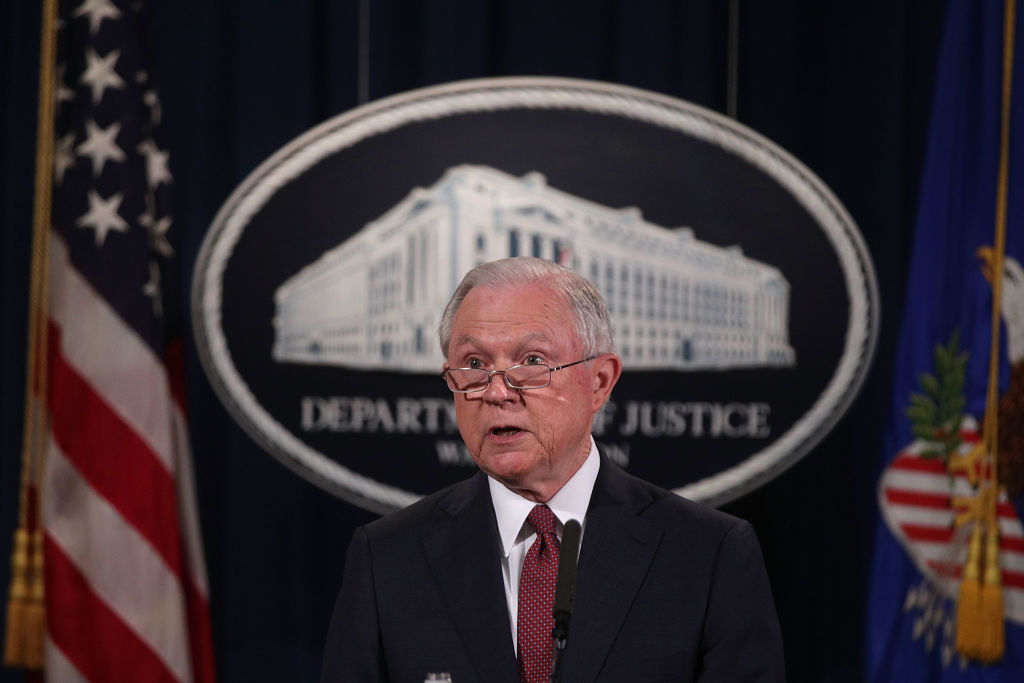Attorney General Jeff Sessions is set to testify before the Senate Judiciary Committee on Justice Department oversight Wednesday.
Here are some key high-profile issues and decisions Sessions has been part of, often rolling back Obama-era legislative decisions.
1. It is Sessions' first time on Capitol Hill since June
Sessions testified for nearly three hours before the Senate Intelligence Committee where Democrats pressed him on his conversations with President Trump related to the Russian investigation into meddling in the 2016 election.
In his opening statement, he said, “I have never met with or had any conversations with any Russians or any foreign officials concerning any type of interference with any campaign or election in the United States.”
2. This is a routine oversight hearing, but the committee might have some questions about President Trump
Trump’s administration has faced many controversies, which the committee might call on Sessions to address, including Russia.
In his June testimony, Sessions denied meeting with Russian officials, contested the assertion made by former FBI director James Comey that he asked Sessions to not leave him alone in a room with Trump again. He refused to disclose his conversation with Trump about the Russia investigation.
3. The Deferred Action for Childhood Arrivals decision could be brought up
Sessions abruptly announced in September the Trump administration decided to end DACA, an executive order signed by former President Barack Obama to protect children who were brought into the country illegally by their parents.
The decision left many DACA recipients worried about their future they had made for themselves in the United States under the protection of DACA.
4. Civil forfeiture regulations
He reversed another Obama-era reform when he reapplied civil asset forfeiture regulations, allowing law enforcement agencies to seize property for people suspected — but not convicted — of crimes.
Reynolds argued “the feds see the rest of us as prey, not as citizens,” in the column criticising Sessions' decision.
5. His treatment of LGBTQ people could be questioned
Sessions wrote a memo granting religious groups and individuals broad protections to express their beliefs when they come into conflict with government. Experts say the guidance could lead to discrimination of LGBTQ people.
Those memos were released a day after the Department of Justice released a memorandum excluding transgender identifying individuals from civil rights protections.
The committee may ask Sessions to talk about a number of other decisions he has made as the U.S. Attorney General.


